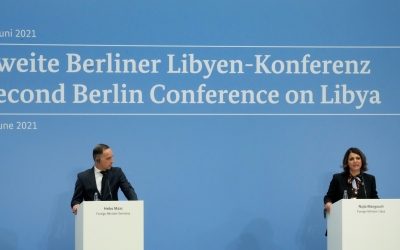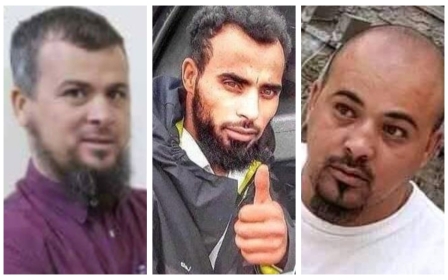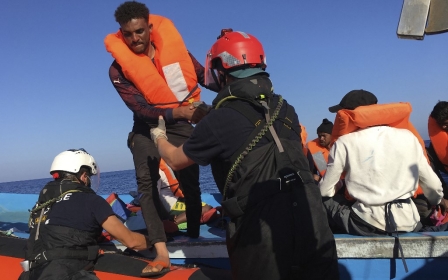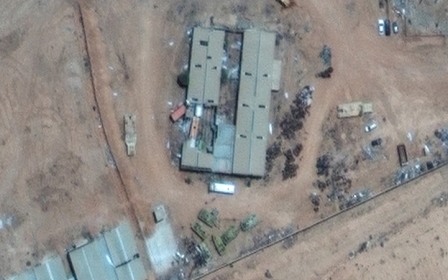Libya's Khalifa Haftar says his forces will 'not submit to any authority'
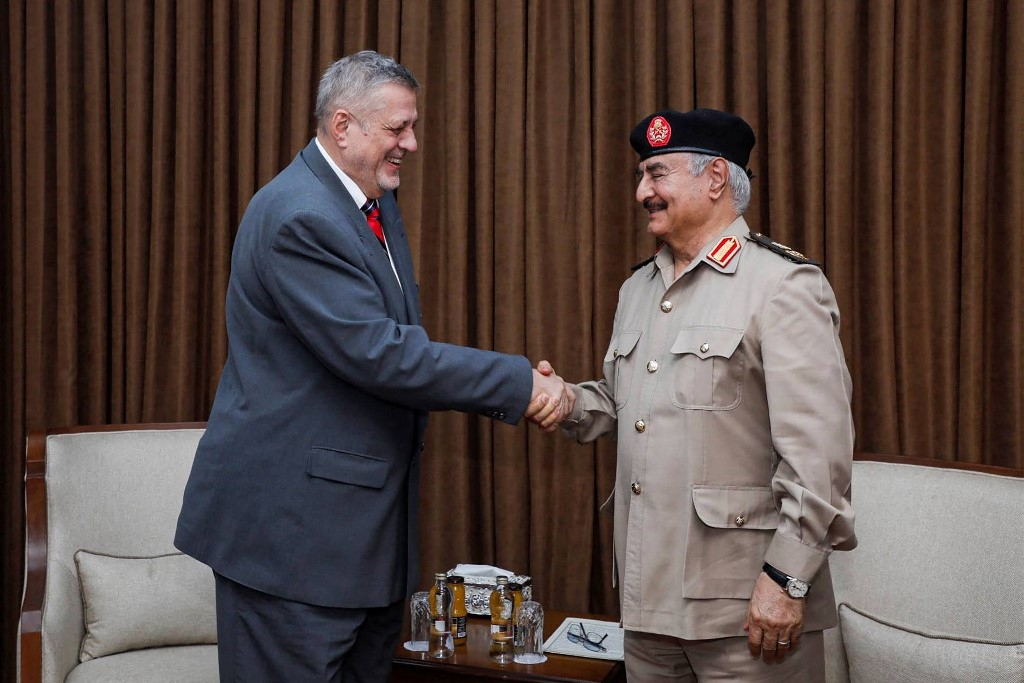
Libya's eastern commander Khalifa Haftar has said his forces will "not submit" to any state authority, days after the US ambassador to the country said the strongman could play a role in unifying the military establishment.
In a speech marking the 81st anniversary of the founding of the Libyan army, Haftar said on Monday that his forces would "not be subject to any authority, and will not surrender".
New MEE newsletter: Jerusalem Dispatch
Sign up to get the latest insights and analysis on Israel-Palestine, alongside Turkey Unpacked and other MEE newsletters
His comments come days after Richard Norland, the US ambassador to Libya, told Al Jazeera that Haftar could play a role in unifying the war-ravaged country's military establishment.
Libya has endured years of chaos since a Nato-backed uprising toppled and killed longtime leader Muammar Gaddafi in 2011.
Fighting between rival militias and competing administrations - including a failed offensive by Haftar and his forces to capture the country's capital Tripoli - came to a halt last summer, and a formal ceasefire went into effect in October, followed by the establishment in March of a new unity government led by interim Prime Minister Abdul Hamid Dbeibah.
The interim government will oversee the country until the upcoming elections that are currently slated for 24 December. However, the elections have faced setbacks as delegates for the Forum for Libya’s Political Dialogue (LPDF) were recently unable to agree on the legal framework needed to organise the vote.
'Difficult military person'
While the unification of Libyan institutions and the government should have put an end to the divisions in practice, forces loyal to Haftar still have effective control over eastern Libya - including lucrative oil fields.
Critics of parliament speaker Aguila Saleh, who was allied with Haftar during his 2019-20 assault on Tripoli, also regard the election setbacks as evidence that eastern-based forces are attempting to sabotage the process.
On the other hand, Saleh and his allies in eastern Libya blamed the Government of National Unity (GNU) for the failure to unify institutions, and the parliament speaker warned last month that a failure to hold elections meant another rival administration could be set up in the east.
In an interview last month with Reuters, Prime Minister Abdulhamid Dbeibah said it would be "very difficult" to unify the country's military, but there is an ongoing dialogue with Haftar.
"Of course, communicating with Haftar, he is a difficult military person, but we communicate with him. But things are not easy," Dbeibah said.
UN special envoy for Libya Jan Kubis has also said that Haftar's forces have not allowed Dbeibah's unity government to take control of the area it commands.
'Hold perpetrators to account'
On Friday, Amnesty International urged the Libyan unity government to prosecute members of the Internal Security Agency (ISA), a collection of armed groups operating in eastern Libya, instead of reconciling with them.
"Instead of incorporating armed groups suspected of crimes under international law into state institutions and trying to secure their allegiance or score political points by granting them financial backing, the Government of National Unity and those with de facto control of territory must take steps to hold perpetrators to account," said Heba Morayef, director of Amnesty International's Middle East and North Africa office.
"Any attempts to integrate members of militias or armed groups must involve rigorous and thorough individual vetting."
Multiple Libyan families have filed lawsuits against Haftar over the past couple of years: two filed in Virginia and one in Washington, for alleged war crimes, accusing the US national of murder, starvation and torture among other charges.
In one suit, a family was forced to take shelter from Haftar's forces' bombings in an unoccupied apartment in the suburb of Ganfouda, where they ate tree bark and grass and drank water from puddles in order to survive.
Haftar initially did not respond to the suit, but after facing the possibility of a default judgment, he hired lawyers for his defence. His legal team claims the Libyan commander is immune from prosecution since he should be treated as a head of state.
Norland declined to comment on the lawsuits in the interview with Al Jazeera.
Middle East Eye delivers independent and unrivalled coverage and analysis of the Middle East, North Africa and beyond. To learn more about republishing this content and the associated fees, please fill out this form. More about MEE can be found here.


